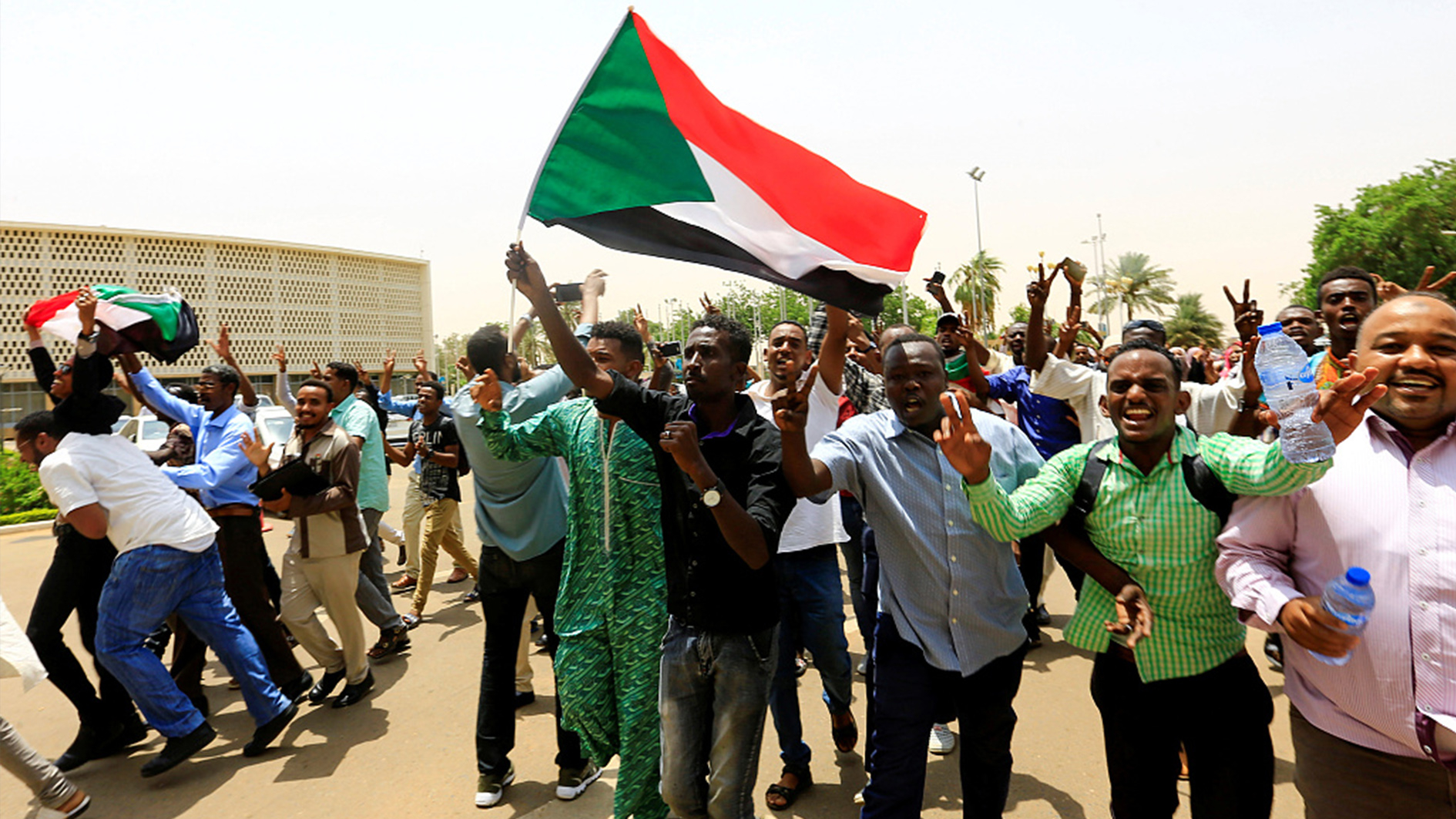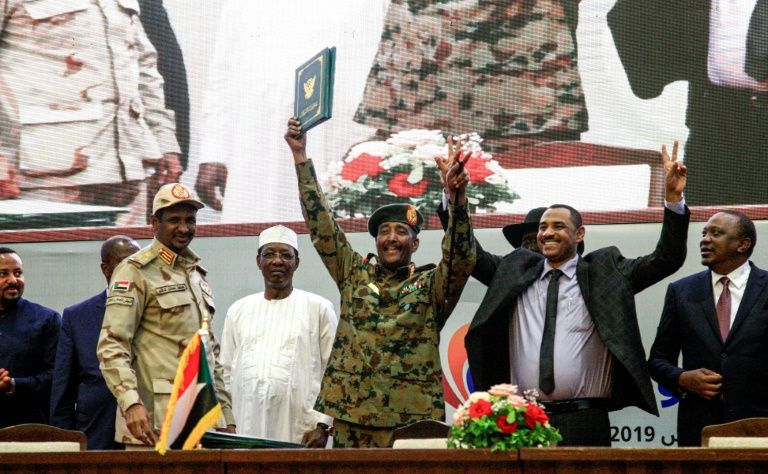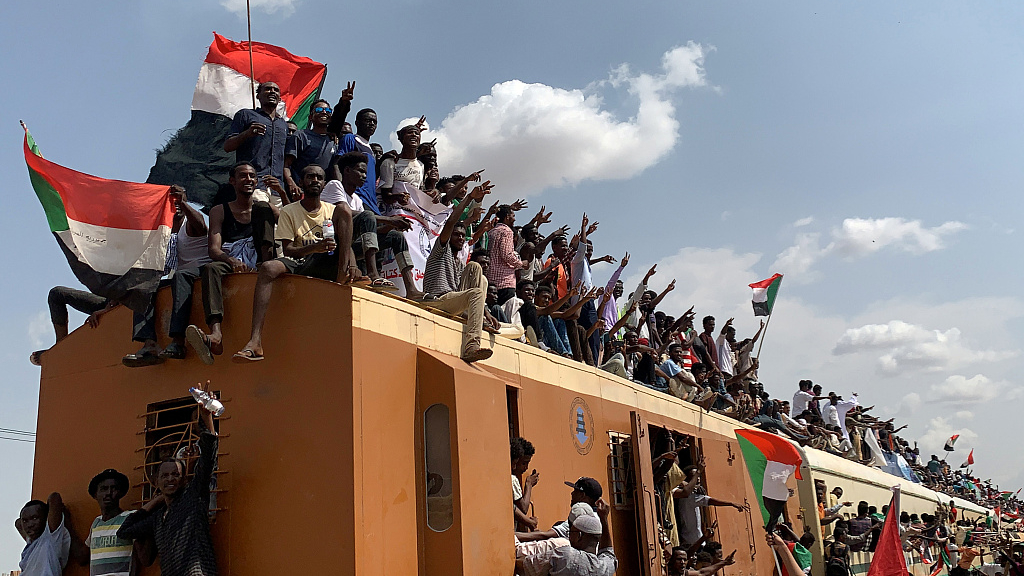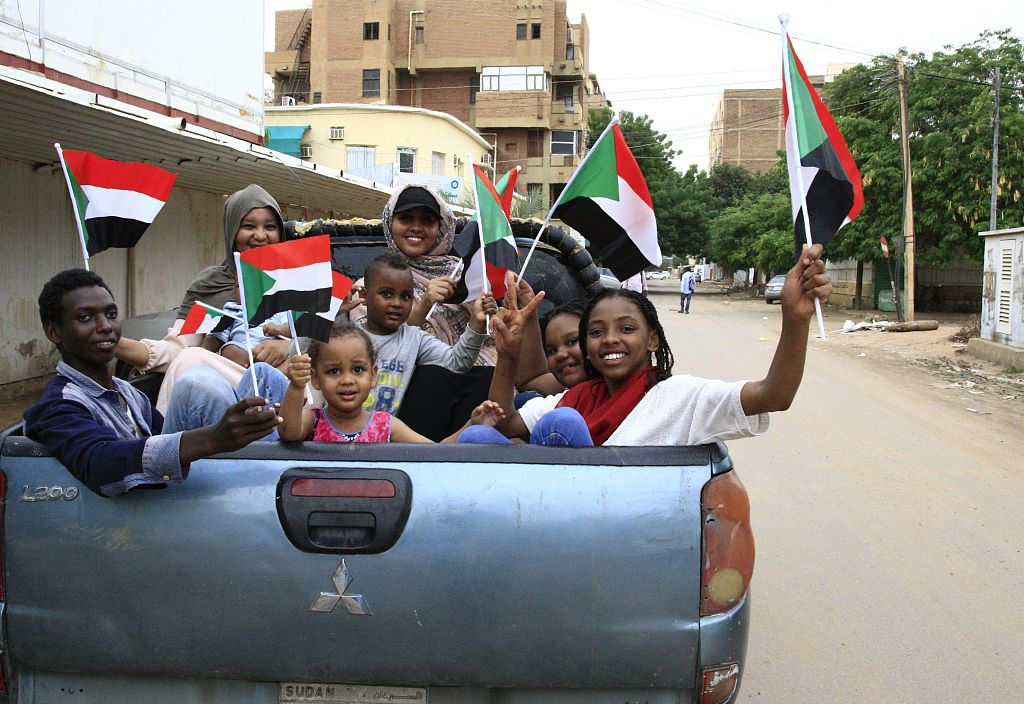

Rapturous crowds filled the streets of Khartoum Saturday as Sudan's generals and protest leaders signed a historic deal paving the way for civilian rule. Thousands of cheering people gathered around the Friendship Hall next to the Nile, where the documents that will govern the country's 39-month transition period were signed.
"This is the biggest celebration I have ever seen in my country. We have a new Sudan," said Saba Mohammed, a veiled 37-year-old woman, waving a small plastic flag. Minutes earlier, the deal was signed by Mohamed Hamdan Daglo, deputy chief of the military council, and Ahmed al-Rabie, representing protest umbrella the Alliance for Freedom and Change.
Heads of state, prime ministers and dignitaries from several countries, including Ethiopia's Prime Minister Abiy Ahmed and Egypt's Premier Mustafa Madbuli, attended the ceremony. The constitutional declaration formalizes the creation of a transition administration that will be guided by an 11-member sovereign council, comprised of six civilians and five military figures.
The agreement brought an end to nearly eight months of upheaval that saw masses mobilize against president Omar al-Bashir, who was ousted in April after 30 years in power.

Sudan's Transitional Military Council (TMC) and the opposition Freedom and Change Alliance sign "constitutional declaration" in Khartoum, Sudan, August 17, 2019. /AFP Photo
Thousands of people had arrived on trains from Sudan's provinces to take part in the celebrations, which will include a huge gathering in Khartoum's main gardens.
The composition of the civilian-majority transitional ruling council is to be announced on Sunday. And that follows the naming on Thursday of former senior UN official Abdalla Hamdok, a veteran economist, as transitional prime minister. He is expected to focus on stabilizing Sudan's economy, which has been in a tailspin since the oil-rich south seceded in 2011.
Economic woes triggered the initial protests in December. At Khartoum's central market early Saturday, shoppers and stallholders interviewed by AFP all said they hoped a civilian government would help them put food on the table.
But many Sudanese are already questioning the ability of the transitional institutions to rein in the military elite's powers during the three-year period leading to planned elections.

Sudanese civilians flash victory signs as they ride on the train to join in the celebrations of the signing of the Sudan's power sharing deal, Khartoum, Sudan, August 17, 2019. /VCG Photo
Under the deal, the country will be ruled by the 11-member sovereign council and a government, which must be dominated by civilians. However, the interior and defense ministers are to be chosen by military members of the council.
Observers have warned that the transitional government will have little leverage to counter any attempt by the military to roll back the uprising's achievements and seize back power.
When he walked out of the Friendship Hall after signing the declaration, the general seen as Sudan's new strongman, Mohamed Hamdan Daglo, was met with a hostile crowd.

Sudanese children wave small national flags as people celebrate outside the Friendship Hall where a historic transition deal is signed, in Khartoum, Sudan, August 17, 2019. /VCG Photo
Members of the paramilitary Rapid Support Forces he commands shielded him back to his car as the crowd saw him off, chanting "blood for blood." They were referring to the alleged role played by his men in the bloody crackdown on a June 3 sit-in that doctors say left at least 127 dead and 11 missing.
Security forces deployed across Khartoum Saturday for the biggest international event in years in Sudan, which had become something of a pariah country under Bashir's rule. One of the most immediate diplomatic consequences of the compromise reached this month could be Sudan's return to the African Union, which suspended the country's membership in June.
(With input from AFP)

Copyright © 2018 CGTN. Beijing ICP prepared NO.16065310-3
Copyright © 2018 CGTN. Beijing ICP prepared NO.16065310-3